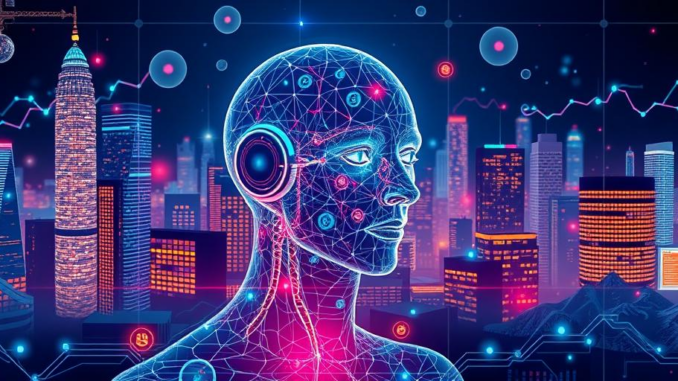
Summary
AI is poised to transform India’s healthcare sector, adding an estimated \$30 billion to its GDP by 2025. This growth stems from increased investment, innovative applications, and the potential to improve patient care while creating new job opportunities. While challenges remain, AI’s transformative power in healthcare is undeniable.
Start with a free consultation to discover how TrueNAS can transform your healthcare data management.
** Main Story**
AI: A \$30 Billion Boost to India’s Healthcare Economy
Artificial intelligence (AI) is rapidly transforming industries worldwide, and healthcare stands as a prime example of its transformative potential. In India, AI is not just changing the game; it’s projected to contribute a staggering \$30 billion to the nation’s GDP by 2025. This remarkable growth projection underscores the increasing investment in AI, the burgeoning number of innovative applications within healthcare, and the transformative impact on patient care and treatment.
Investment and Innovation Fueling AI’s Rise
The global surge in AI investment speaks volumes about its perceived potential. Venture capital and institutional investors are pouring billions into healthcare AI, recognizing its capacity to revolutionize the industry. This funding fuels the development of cutting-edge AI applications across various healthcare domains. From diagnostics and personalized medicine to drug discovery and robotic surgery, AI is enhancing efficiency, accuracy, and patient outcomes. Moreover, major tech companies like Apple are further accelerating this growth with substantial investments in AI infrastructure and development. Apple’s recent \$500 billion investment commitment includes significant allocations to enhance its AI capabilities, which will undoubtedly impact its expanding healthcare ecosystem.
Transforming Patient Care and Creating Jobs
AI’s potential to improve patient care is immense. AI-powered diagnostic tools can analyze medical images with greater speed and accuracy, aiding in early disease detection. Personalized medicine leverages AI algorithms to tailor treatment plans to individual patients’ genetic makeup and lifestyle factors. Robotic surgery enhanced by AI allows for more precise and less invasive procedures. These advances have the potential to enhance patient outcomes significantly, leading to better quality of life and increased longevity.
Addressing Challenges and Embracing the Future
Despite the immense promise, several challenges accompany the widespread adoption of AI in healthcare. Data privacy and security concerns are paramount, as AI algorithms require access to vast amounts of sensitive patient information. Ensuring the ethical and responsible use of AI is crucial to maintain public trust and prevent biases in algorithms. Additionally, integrating AI into existing healthcare systems can be complex and require significant investment in infrastructure and training. However, the healthcare sector has started to address these concerns, and they are focusing on initial “quick wins” with AI, like improving workflows through automating administrative tasks. The establishment of AI governance structures indicates a proactive approach towards addressing these challenges.
AI and the Evolving Job Landscape
The integration of AI in healthcare is not just about improving patient care; it also has significant implications for the job market. While some existing roles may be displaced, AI is expected to create a wealth of new job opportunities. Research suggests a net positive effect on employment, particularly in the healthcare sector. This growth will be driven by the need for skilled professionals who can develop, implement, and maintain AI systems. Furthermore, AI will free up healthcare workers from routine tasks, allowing them to focus on providing more personalized and empathetic patient care. The future of healthcare will demand a workforce equipped with AI-related skills, creating new career paths and opportunities for growth. As the healthcare industry and AI continue to evolve hand in hand, the future promises a new era of innovation, efficiency, and patient-centered care. As of today, March 6, 2025, the trajectory of AI in healthcare appears remarkably promising. However, it’s important to acknowledge that this is a rapidly evolving field, and the precise impact of AI may shift over time.


\$30 billion by 2025, eh? I wonder how much of that comes from diagnosing me with phantom ailments I can then Google and self-treat based on algorithms? Seems like a great way to boost GDP, provided I don’t mind becoming a hypochondriac!
That’s a funny, but valid, point! The hope is that AI in healthcare will lead to more accurate diagnoses and personalized treatments, but the potential for misinterpretation and anxiety is definitely something to consider. We need to ensure the focus remains on improved patient outcomes and not just increased efficiency. Thanks for raising such a thoughtful question!
Editor: MedTechNews.Uk
Thank you to our Sponsor Esdebe
\$30 billion, you say? Guess I’ll start practicing my robot bedside manner now. Maybe I can get a head start on those new healthcare jobs by learning to speak fluent binary.